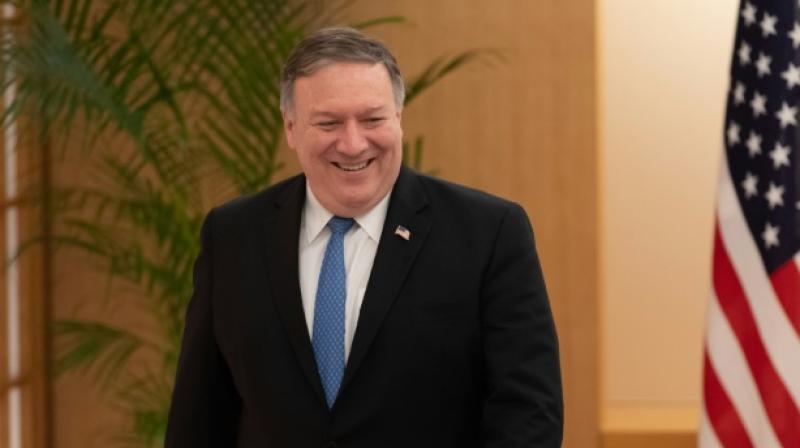Mike Pompeo decries China\'s \'bad behaviour\', defends US tariffs
Pompeo and Wang at first struck a conciliatory tone when they met face-to-face in Bangkok on Thursday for the first time this year.

Bangkok: US Secretary of State Mike Pompeo on Friday decried "decades of bad behaviour" from China that have hampered free trade, laying out a case at a Southeast Asian forum for Washington's escalating trade war with Beijing.
Pompeo's statements came after President Donald Trump on Thursday announced he would slap a 10 per cent tariff on the remaining USD 300 billion of Chinese imports starting Sept. 1, abruptly ending a truce in year-long trade dispute between the world's two largest economies.
"We want free and fair trade, not trade that undermines competition," Pompeo told a regional youth leadership program in the Thai capital Bangkok, where he is attending a wider meeting of Southeast Asian nations with world powers.
US President Donald Trump said on Thursday he would impose an additional 10 per cent tariff on USD 300 billion worth of Chinese imports starting September 1, as talks aimed at easing tensions between the world’s two largest economies continue.
US criticism of China has been a running theme at the Bangkok forum.
"For decades, China has taken advantage of trade ... It's time for that to stop. President Trump said we're gonna fix this. And to fix it requires determination, and that's what you saw this morning," Pompeo said on Friday.
Senior Chinese diplomat Wang Yi told reporters separately in Bangkok that the new tariffs were not a correct or constructive way to resolve the trade dispute between the two countries.
Asked about the global economic disruption resulting from the US-China row, Pompeo responded: "There have been negative implications from decades of bad behaviour from China."
The proposed new tariffs on Chinese goods could further disrupt global supply chains. US and Chinese negotiators ended a brief round of trade talks in Shanghai on Wednesday with little sign of progress and agreed to meet again in September.
Global stocks took another beating on Friday with investors piling into safe-haven assets.
Pompeo - who had assured Southeast Asian partners a day earlier that Washington would not force them to choose sides between the United States and China - used his speech on Friday to portray US investment as a more benign option.
"Our investments don't serve a government, and our investment here don't serve a political party, or frankly a country's imperial ambitions," he said.
"We don't fund bridges to close gaps of loyalty," he said, adding later: "Ask yourself this, who really encourages self-sufficiency and not dependence, investors who are working to meet your consumers' needs, or those who entrap you in debt?"
His comments appeared to be a jab at China's mammoth Belt and Road Initiative, which is aimed at boosting economic and trade ties and building a modern version of the Silk Road to link China with Asia, Europe and beyond through large-scale infrastructure projects.
It has, however, run into opposition in some countries over fears that opaque financing arrangements lead to unsustainable debt and that it is more about promoting Chinese influence than bringing development.
US-China relations have been fraught on issues ranging from trade, US sanctions on Chinese telecoms giant Huawei, Taiwan and the busy South China Sea waterway.
Pompeo and Wang at first struck a conciliatory tone when they met face-to-face in Bangkok on Thursday for the first time this year.
However, Pompeo soon renewed criticism, referring to Chinese "coercion" of neighbours in maritime confrontations in the disputed South China Sea and said Beijing's upstream dam-building on the Mekong River was harming countries in Southeast Asia that depend on the waterway.

